ABG à la conférence sur les bourses postdoctorales du MSCA : idées clés et conseils pour les candidats
Le 29 avril, ABG a participé à la conférence dédiée aux bourses postdoctorales MSCA, organisée par le chapitre français de MCAA et la Maison de l'Île-de-France, pour la troisième année consécutive. L'événement a accueilli des intervenants du Point de Contact National MSCA et des chercheurs postdoctoraux MSCA, anciens et actuels, représentant à la fois les secteurs des sciences sociales et des STEM. Maria Clotilde Camboni, responsable de l'événement pour le chapitre français de MCAA et ancienne chercheuse MSCA, a dirigé l'événement et co-modéré le débat. La date limite de dépôt des candidatures pour le programme MSCA PF est le 10 septembre, lisez donc la suite (en anglais) pour quelques conseils relatifs à la demande de subvention.
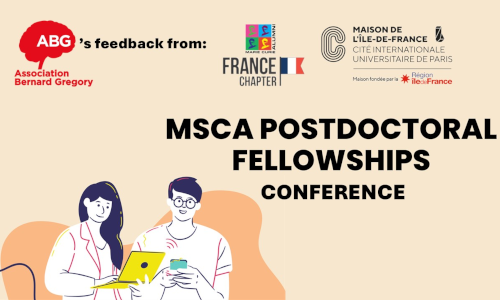
The Role of ABG and MCAA in MSCA Projects
Advice from National Contact Point for France
Advice from MSCA PF grant holders
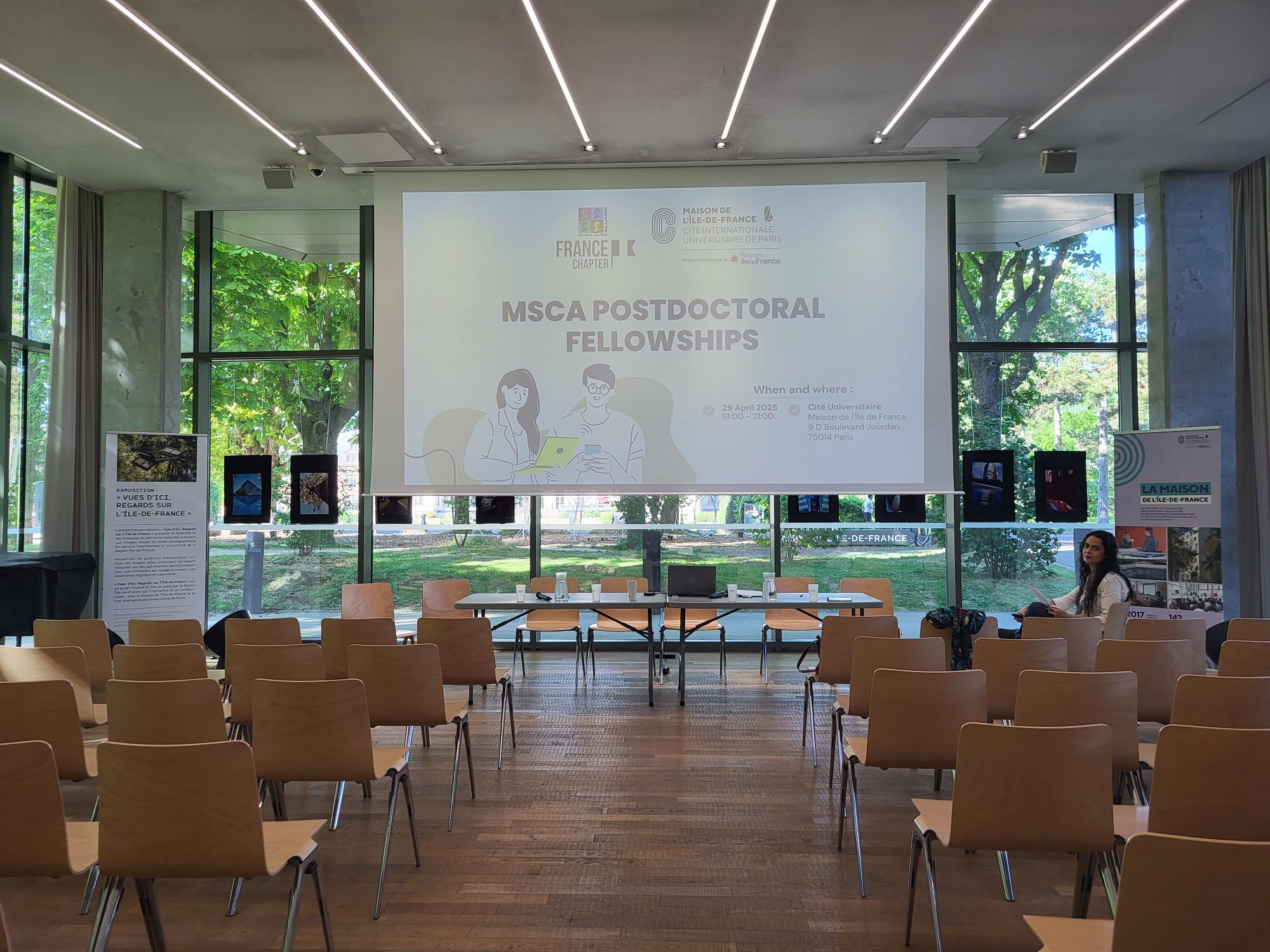
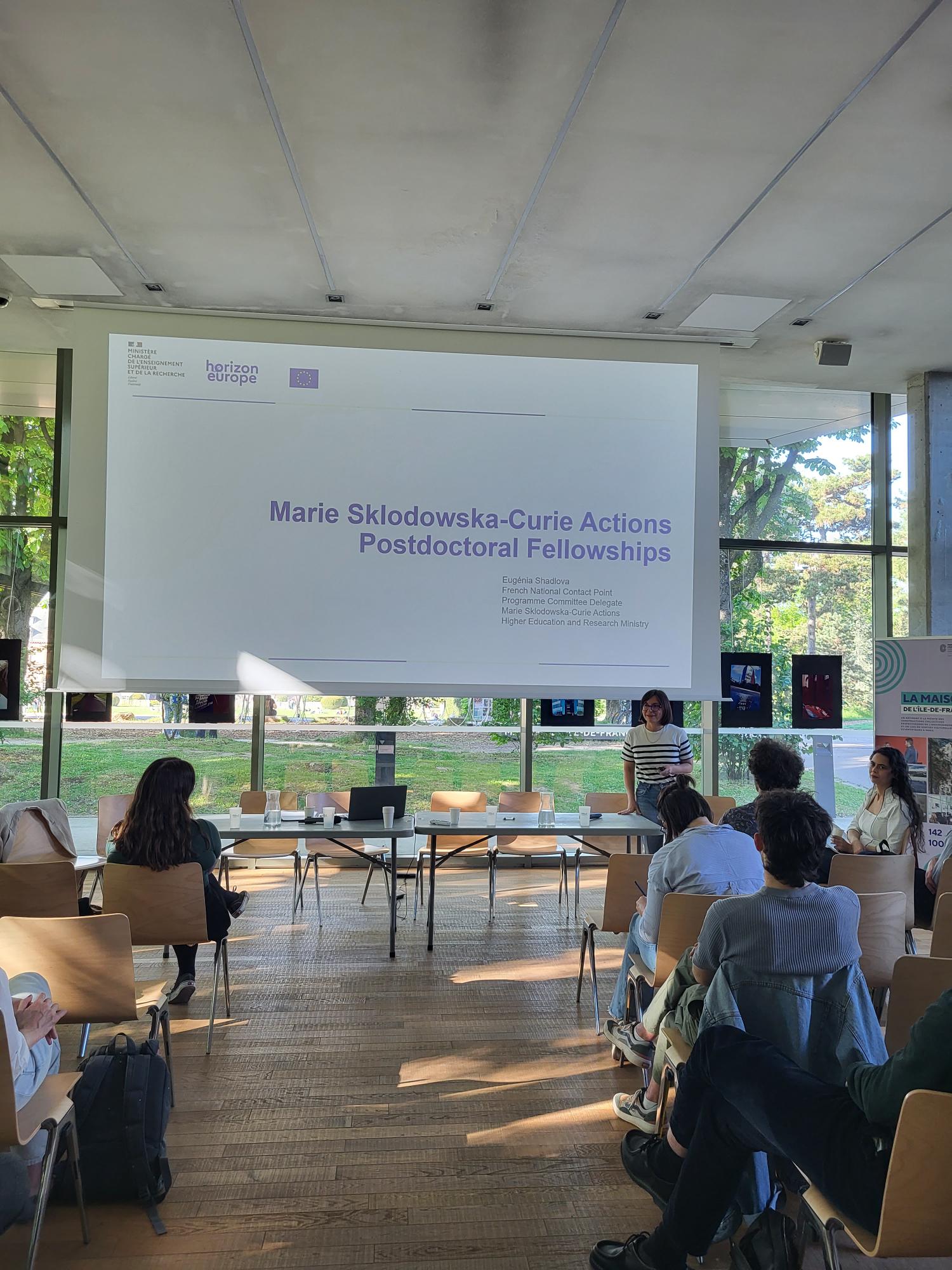
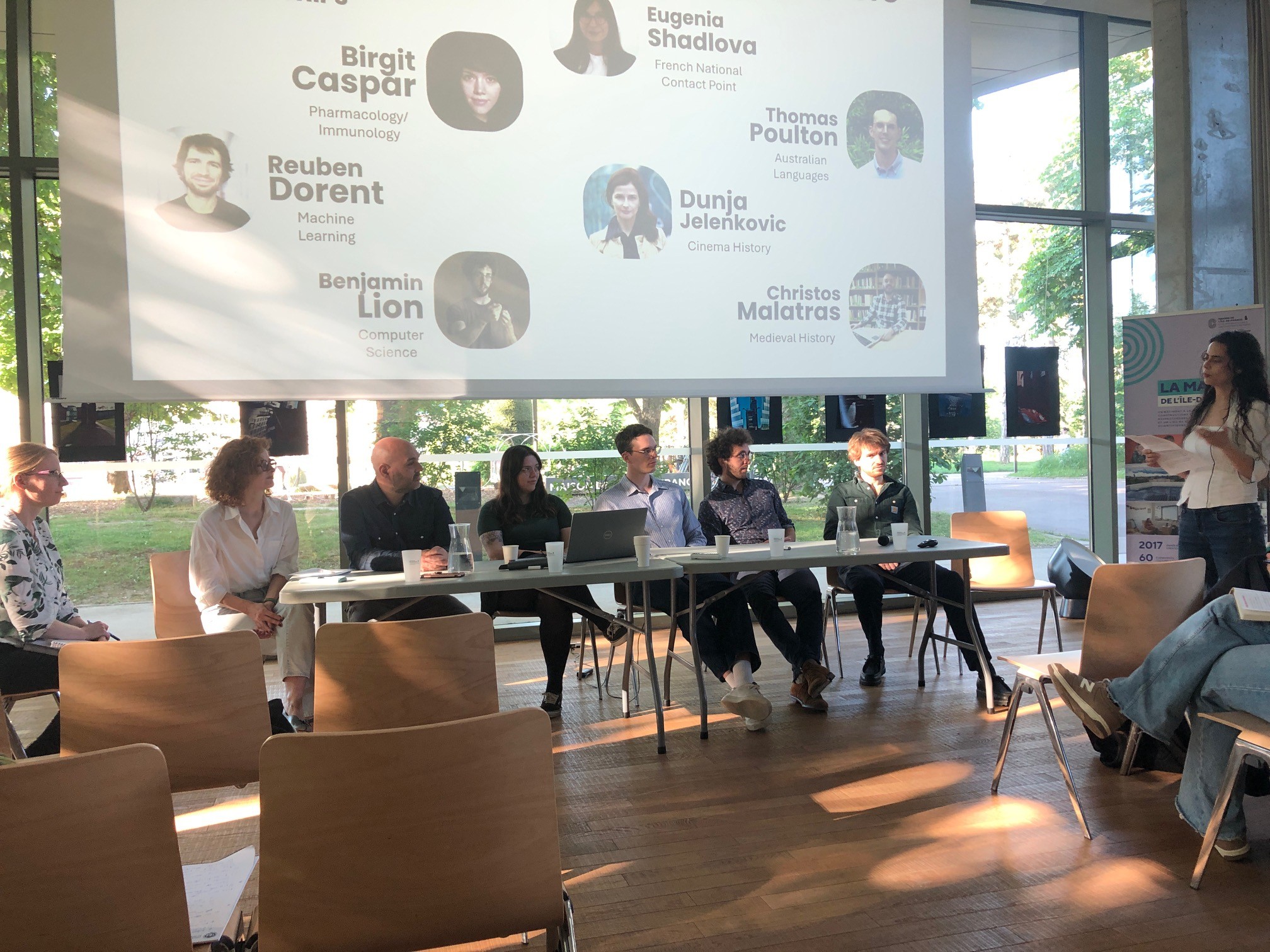
The Role of ABG and MCAA in MSCA Projects
As an expert in career development and trainings dedicated to researchers on all levels, ABG is increasingly active in different European projects in particular initiatives that are the part of Marie Sklodowska Curie Actions such as COFUND and ITN/Doctoral Networks (read more). ABG also contributes to institutional capacity-building by promoting good practices in supervision and intersectoral collaboration and supporting recruitment efforts.
The Marie Curie Alumni Association (MCAA) is an international non-profit organization established and supported by the European Commission. Its members share the common experience of having received MSCA funding, which equips them with a strong research background. Within this vibrant community, the MCAA France Chapter plays a key role in supporting researchers based in France by fostering networking and collaboration, shaping science policy in Europe, and offering professional development opportunities throughout their careers.
During the conference, Dominika Foretek, with her double role as ABG and MCAA member, participated as the second moderators of the panel discussion to bring novelty and collective advice regarding preparation of the individual projects application. Her involvement reflects ABG’s ongoing commitment to supporting researchers in the MSCA community, whether as applicants, fellows, supervisors, or alumni.
Advice from National Contact Point for France
Eugenia Shadlova representing MSCA National Contact Point for France introduced the general information related to the MSCA Actions and Postdoctoral Fellowships. For the type of postdoctoral fellowships and basic information about the application format we invite you to consult our related article. Here, we w highlight two interesting changes introduced in Horizon Europe programme:
- Up to 6 months placement in non-academic structure after the end of the fellowship: This initiative gives an opportunity to facilitate testing or implementation of the results obtained during the fellowship into non-academic sector. If the project has such a perspective, an additional budget can be requested in the proposal for the duration of the placement.
- Long-Term Leave Allowance: this was introduced to contribute to the personnel costs incurred by beneficiaries in case of the researchers’ leave of longer than 30 consecutive days, including maternity, paternity, parental, sick or special leave.
Key information and advice from the NCP:
- Key features of this program are that it supports not only excellent research, but also researchers' career skills and training. So, when you write your proposal, it's very important to keep in mind how this project will have a positive impact on your career.
- It is a bottom-up approach; the applicants are free to choose their research topic. There is no predefined thematic axes.
- It encourages international, intersectoral, and interdisciplinary mobility.
- Postdoctoral Fellowships may be hosted by either academic or non-academic organizations. The academic sector is defined as higher education establishments, non-profit research organizations, or international European interest organizations. The non-academic sector includes not only companies, industries and SMEs, but, for example, also NGOs or museums or associations or public administration or hospitals.
- Secondments, academic or non-academic, are encouraged and may take place in any country of the world, with exception of Russia. It may also take place in the same country as your main host institution, if it is relevant to you. During these secondments, you continue being employed by your main host institution. For example, if you apply for a European fellowship, you may have up to one-third of the total duration of your grant that will be the secondment. You may also have several secondments in different organizations.
- Read different call reference documents, such as Guide for Applicants and MSCA Work Program.
- Contact your host institution early. There is the administrative data to fill in in the Part A, that should be provided by your future host institution.
- The projects will be evaluated by eight scientific panels: chemistry, physics, life sciences, economic sciences, social sciences, mathematics, environmental sciences, and engineering sciences. In Part A, you will need to select the keywords, different descriptors from your panel or from the additional panel if your project is very interdisciplinary. The good keyword selection is very important.
- To be considered for funding, you must get at least 70%. But as the competition is actually very high, usually to get funded, you need to have at least 90% or even 95% or 97%.
- You can also contact the NCPs in the country where you are applying. You can find the link to identify the NCP contacts information on Horizon Europe Portal.
Advice from MSCA PF grant holders
The event followed with a Q&A session with MSCA fellows that recently obtained their fellowship, giving the participants information from first person perspective. The group was well equilibrated with 3 representatives of Humanities and Social Sciences and 3 from STEM:
- Birgit Caspar- Researcher in Pharmacology;
- Reuben Dorent- Researcher in Machine Learning;
- Benjamin Lion- Researcher in Computer Science;
- Dunja Jelenkovic- Researcher in Cinema History;
- Christos Malatras- Researcher in Medieval History;
- Thomas Poulton- Researcher in Australian Language.
We bring here the selected advice and examples from panelist:
- Addressing interdisciplinary aspects and research training in humanities can be challenging. Christos Malatras, based on his medieval history studies, addressed interdisciplinarity by introduction of digital humanities to his project.
- From Reuben Dorent experience an important aspect is to highlight in the proposal what will be new for you in your project and how that will be useful for your career development. In his proposal, he applied his expertise on machine learning and image analysis to a new field, in which his new collaborators worked, to bridge the gap and propose solutions for previously unsolved problems.
- Similarly, when Dunja Jelenkovic was selecting her host for her second fellowship she advises being very strategic, to be able to address the training aspects of the evaluation. The presentation of your project has to be an equilibrium between your previous expertise and the aspects in which your knowledge is limited.
- Also, the panelists emphasized the importance of getting to know the institution who will be your future host, as the application is submitted together. Thomas Poulton highlighted that as the application is in early September, just after summer holidays in many countries, it is important to get in contact as early as possible. Additionally, some institutions have their internal deadlines to ensure the process before the official closing date, so reaching out to their internal grant offices can help better prepare the timeline of writing the project.
- Applying for grants is a learning process and being persistent can be the key to success. Many applicants do not receive the fellowship the first time, but the feedback received helps to improve and complete the application.
- Your application must be very clear and address the specific questions for each section. The risk section is one of those elements that should not be omitted. In the humanities, the societal impact could be harder to identify. As an example from Christos Malatras, in fields such as medieval history, information provided to museums preparing different exhibitions could bring added value for general public.
- Using the adapted wording and being explicit can help to make sure that reviewers do not miss important elements of your application.
In the final part of the discussion, panelists highlighted the importance of seeking feedback from colleagues or former MSCA fellows and reviewing successful applications. To respond to this need, ABG is launching a dedicated support initiative for MSCA Postdoctoral Fellowship applicants, if you're preparing a proposal and would like expert support, feel free to contact us.
RESOURCES
Getting yourself well informed and reading call specific documents is essential thus please find below links to call details and helpful resources:
NCP Webinar replay
NCP MSCA Handbook
Vous souhaitez recevoir nos infolettres ?
Découvrez nos adhérents
 Aérocentre, Pôle d'excellence régional
Aérocentre, Pôle d'excellence régional  Nantes Université
Nantes Université  Laboratoire National de Métrologie et d'Essais - LNE
Laboratoire National de Métrologie et d'Essais - LNE  Ifremer
Ifremer  ASNR - Autorité de sûreté nucléaire et de radioprotection - Siège
ASNR - Autorité de sûreté nucléaire et de radioprotection - Siège  Servier
Servier  Tecknowmetrix
Tecknowmetrix  SUEZ
SUEZ  Institut Sup'biotech de Paris
Institut Sup'biotech de Paris  Nokia Bell Labs France
Nokia Bell Labs France 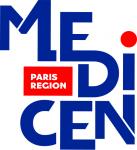 Medicen Paris Region
Medicen Paris Region  ONERA - The French Aerospace Lab
ONERA - The French Aerospace Lab  Groupe AFNOR - Association française de normalisation
Groupe AFNOR - Association française de normalisation  Généthon
Généthon  TotalEnergies
TotalEnergies  ADEME
ADEME  ANRT
ANRT
